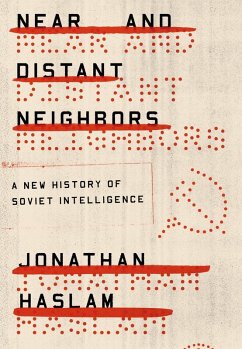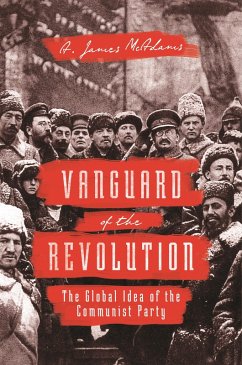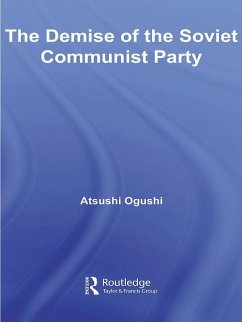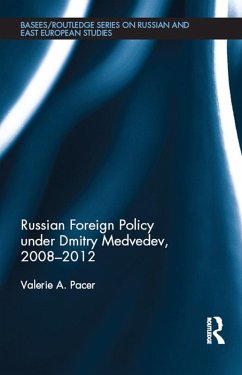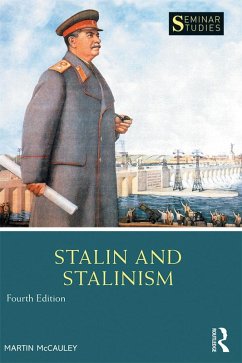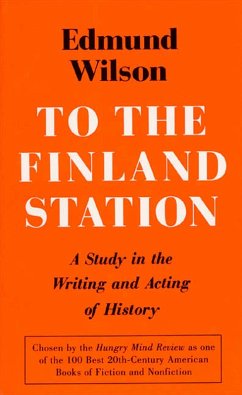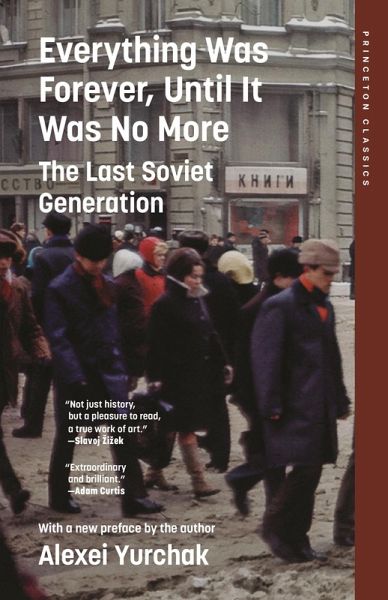
Everything Was Forever, Until It Was No More (eBook, ePUB)
The Last Soviet Generation
Erscheint vor. 10.03.26
14,95 €
inkl. MwSt.
Unser Service für Vorbesteller - dein Vorteil ohne Risiko:
Sollten wir den Preis dieses Artikels vor dem Erscheinungsdatum senken, werden wir dir den Artikel bei der Auslieferung automatisch zum günstigeren Preis berechnen.
Weitere Ausgaben:

PAYBACK Punkte
7 °P sammeln!
"[An] extraordinary book."-Brian Eno • "One of the best books about the U.S.S.R. in its late stage."-Alexei Navalny, from Patriot: A Memoir • "Not just history, but a pleasure to read, a true work of art."-Slavoj Zizek • "Extraordinary and brilliant."-Adam Curtis, director of HyperNormalisation A fascinating exploration of "hypernormalization" in a political system that seemed powerful and eternal-even when it was on the verge of collapse Soviet socialism was based on paradoxes that were revealed by the peculiar experience of its collapse. To the people who lived in that system ...
"[An] extraordinary book."-Brian Eno • "One of the best books about the U.S.S.R. in its late stage."-Alexei Navalny, from Patriot: A Memoir • "Not just history, but a pleasure to read, a true work of art."-Slavoj Zizek • "Extraordinary and brilliant."-Adam Curtis, director of HyperNormalisation A fascinating exploration of "hypernormalization" in a political system that seemed powerful and eternal-even when it was on the verge of collapse Soviet socialism was based on paradoxes that were revealed by the peculiar experience of its collapse. To the people who lived in that system the collapse seemed both completely unexpected and completely unsurprising. At the moment of collapse it suddenly became obvious that Soviet life had always seemed simultaneously eternal and stagnating, vigorous and ailing, bleak and full of promise. Although these characteristics may appear mutually exclusive, in fact they were mutually constitutive. This book explores the paradoxes of Soviet life during the period of "late socialism" (1960s-1980s) through the eyes of the last Soviet generation. Focusing on the major transformation of the 1950s at the level of discourse, ideology, language, and ritual, Alexei Yurchak traces the emergence of multiple unanticipated meanings, communities, relations, ideals, and pursuits that this transformation subsequently enabled. His historical, anthropological, and linguistic analysis draws on rich ethnographic material from Late Socialism and the post-Soviet period. The model of Soviet socialism that emerges provides an alternative to binary accounts that describe that system as a dichotomy of official culture and unofficial culture, the state and the people, public self and private self, truth and lie-and ignore the crucial fact that, for many Soviet citizens, the fundamental values, ideals, and realities of socialism were genuinely important, although they routinely transgressed and reinterpreted the norms and rules of the socialist state.
Dieser Download kann aus rechtlichen Gründen nur mit Rechnungsadresse in A, D ausgeliefert werden.




